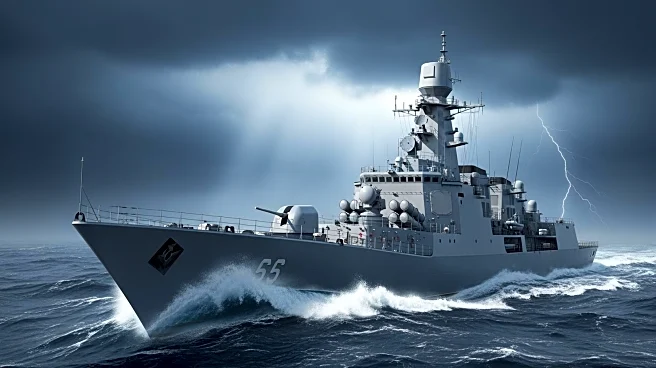What's Happening?
Spanish Special Forces have liberated the Greek-owned tanker Hellas Aphrodite, which was seized by pirates off the coast of Somalia. The vessel was boarded by pirates who fired small arms and RPGs, but the crew managed to secure themselves in the citadel.
The Spanish frigate ESPS Victoria, part of the EU's Operation Atalanta, was dispatched to the scene and successfully intervened. The operation involved coordination with regional authorities and international forces, including Japanese and Seychelles aircraft. The incident is part of a series of attacks by the same pirate group, which has been using an Iranian fishing boat as a mothership.
Why It's Important?
The liberation of the Hellas Aphrodite underscores the effectiveness of international cooperation in combating piracy. The incident highlights the ongoing threat to maritime security in the region, which can disrupt global shipping and trade. The coordinated response by EU forces demonstrates the importance of maintaining a strong naval presence to deter pirate activities. The situation also raises concerns about the potential resurgence of piracy, which could have significant economic implications for shipping companies and global trade routes.
What's Next?
EUNAVFOR Atalanta and other security operations continue to monitor the region, with efforts to intercept the pirate mothership ongoing. Vessels entering the area are advised to register with security operations and enhance their protection measures. The international community may increase naval patrols and strengthen regional cooperation to prevent further incidents. There is also a focus on gathering intelligence for potential prosecution of the pirates involved.
Beyond the Headlines
The incident raises broader questions about the socio-economic conditions in Somalia that contribute to piracy. Addressing these root causes may involve international aid and development efforts to improve stability and economic opportunities in the region. The stigma faced by local fishermen due to pirate activities also highlights the need for cultural understanding and support for legitimate maritime workers.
















